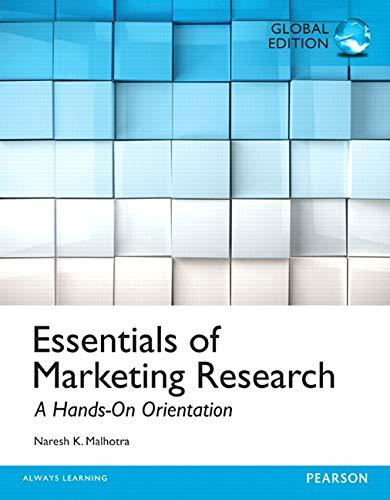Question
Question 1 . Jilian Carter was preparing the adjusting journal entries for Jilian's Java, a business that uses accrual accounting, in order to prepare an
Question1. Jilian Carter was preparing the adjusting journal entries for Jilian's Java, a business that uses accrual accounting, in order to prepare an adjusted trial balance and financial statements. She knew that $610 of salaries related to the current accounting period had accrued but wouldn't be paid until the next period. Jilian thought that simply not including the adjustment for these salaries would mean that salaries expense would be lower and reported net income would be higher than it would have been had she made the adjustment. Further, she knew that the Salaries Payable account would be zero, so the liabilities reported on the balance sheet would be less and her business would look even better. Besides, she reasoned that these salaries would be reported eventually, so it was merely a matter of showing them in one period instead of another. Dismissing the reporting as just a timing issue, she ignored the adjustment for the additional salaries expense. Is Jilian acting unethically by failing to record the adjustment for accrued salaries? Does it matter that, shortly into the new accounting period, the salaries will ultimately be paid? Is it really simply a matter of timing? What are the potential problems of failing to include all the adjusting journal entries?
Question 2.Brent Robertson and his banker were reviewing the quarterly income statements for his consulting business, Robertson and Associates, Inc. The banker was impressed with the growth of sales revenue and net income for the second quarter of this year compared with the second quarter of last year. Brent knew it had been a good quarter, but he didn't think it had been spectacular. Suddenly, Brent realized that he failed to close out the revenue and expense accounts for the prior quarter, which ended in March. Because those temporary accounts were not closed out, their balances were included in the second quarter amounts for the current year. Brent then realized that the banker had the financial statements but not the general ledger or any trial bal-ances. Thus, the banker would not be able to see that the accounting cycle from the first quarter was not properly closed and that this failure was creating a misstated income statement for the second quarter of the current year. The banker then commented that the business seemed to be performing so well that he would approve a line of credit for the business. Brent decided to not say anything because he did not want to lose the line of credit. Besides, he thought, it really did not matter that the income statement was misstated because his business would be sure to repay any amounts borrowed. Should Brent have informed the banker of the mistake made? Should he have redone the second quarter's income statement? Was Brent's failure to close the prior quarter's revenue and expense accounts unethical? Does the fact that the business will repay the loan matter?
Step by Step Solution
There are 3 Steps involved in it
Step: 1

Get Instant Access with AI-Powered Solutions
See step-by-step solutions with expert insights and AI powered tools for academic success
Step: 2

Step: 3

Ace Your Homework with AI
Get the answers you need in no time with our AI-driven, step-by-step assistance
Get Started


